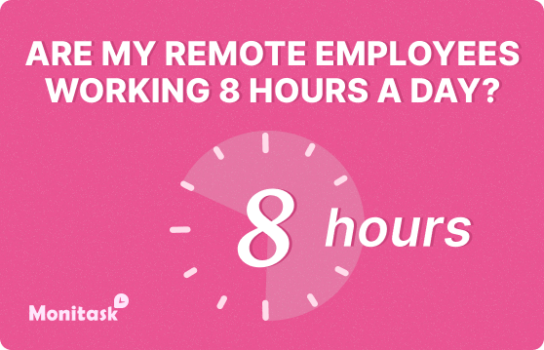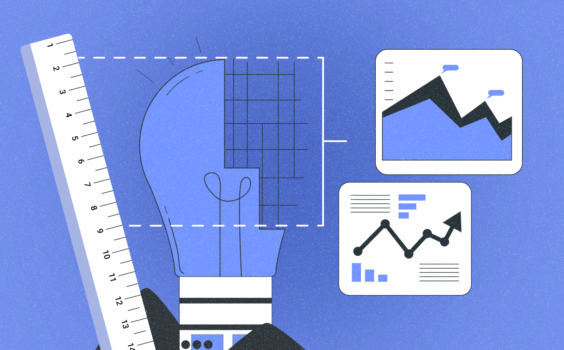How to Prioritize Tasks

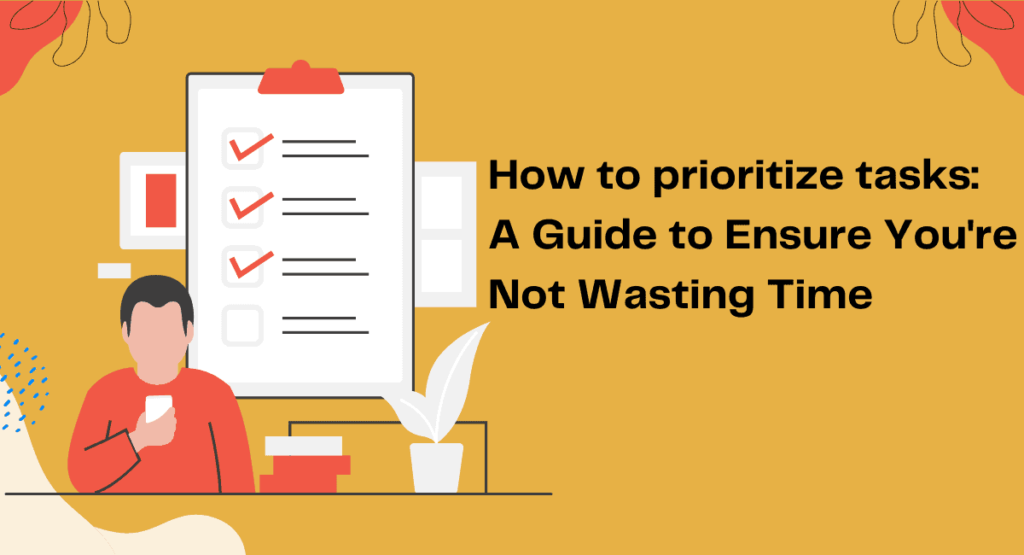
One crucial skill needed to be successful is you must-have capability and understanding of how to prioritize tasks. Juggling multiple projects can be challenging, but you can accomplish more in less time if you focus on the most critical initiatives.
We’ll go through some ideas for ensuring you’re not wasting time on irrelevant activities in this article.
Let’s dive in!
How to identify the most important tasks
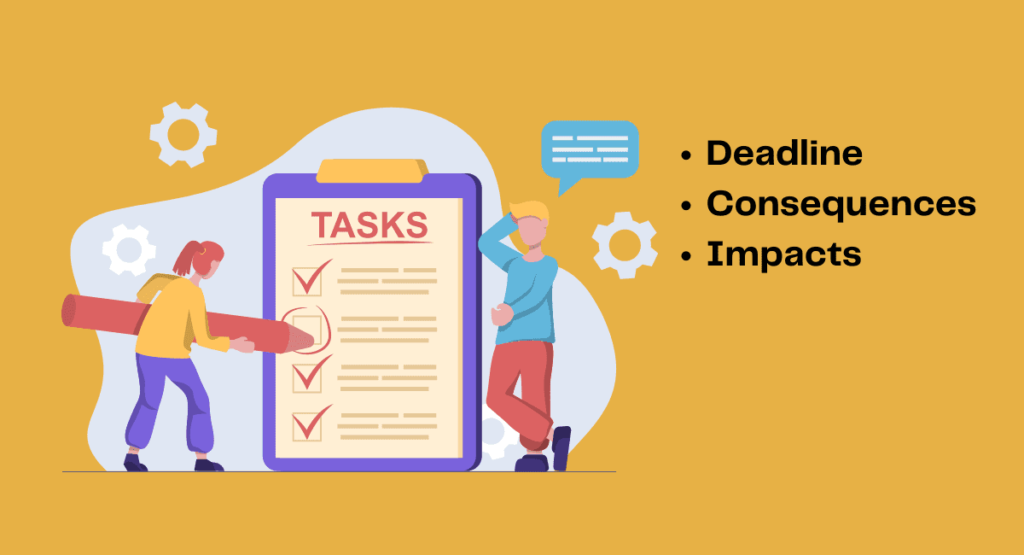
“Make sure to question the value and purpose of each task and make a list in order of importance” @upskillyourlife.
The first step in prioritizing tasks is to identify the most important ones. Ask yourself the following questions to help you figure this out:
- When are the deadlines for this project?
- What are the consequences of not completing this project?
- Who will be impacted if this project is not completed on time?
- What are the prospects for this initiative to succeed?
Once you’ve identified the most critical tasks, it’s time to start working on them. However, there are a few things to bear in mind:
- Make sure you have a clear understanding of the task at hand. If you’re still unclear about it, ask your employer or the person responsible for the task.
- Break down the job into smaller, more doable tasks. This will make it less daunting and more likely that you’ll be able to complete it on time.
- Create a timeline for yourself, and make sure to stick to it. It will assist you in maintaining your focus and avoiding being overwhelmed.
What are some common methods for identifying priorities?
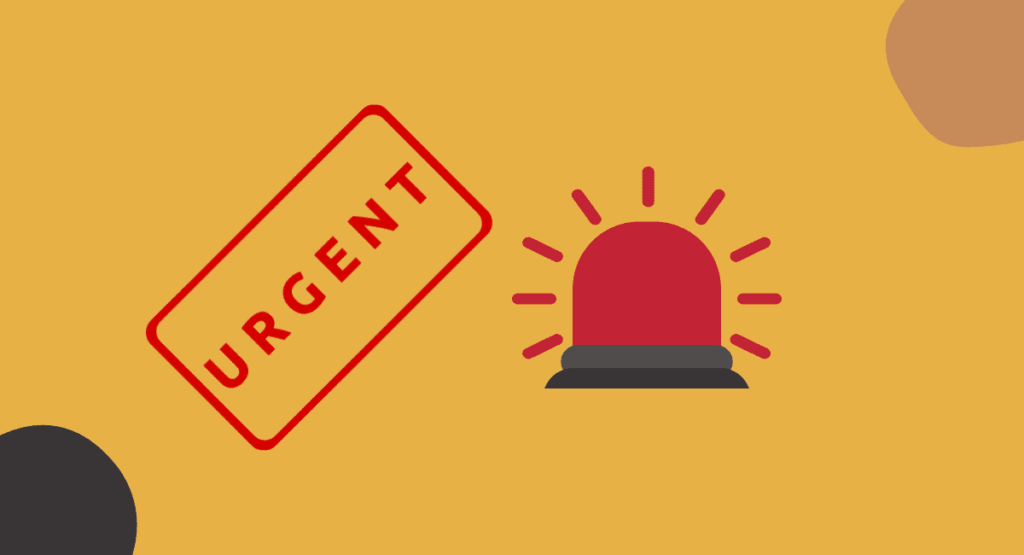
When it comes to prioritizing tasks, there are a few common methods that you can use:
The Eisenhower Matrix
This matrix was created by President Dwight Eisenhower and can be used to prioritize tasks based on urgency and importance. Tasks are organized into one of four quadrants:
- Urgent and crucial.
- Urgent but not crucial.
- Not urgent but crucial.
- Not urgent and not crucial.
The point of this matrix are:
- Both urgent and crucial tasks should be completed first, with less essential but important tasks following.
- Urgent but not crucial tasks can be delegated or postponed.
- You can eliminate not urgent and not crucial tasks.
The Eisenhower Matrix can be a helpful tool for task prioritization.
The Weighted Task List
This method assigns a point value to tasks, with the most critical tasks receiving the highest points. Tasks are then prioritized based on their point value.
The ABCDE Method
This method stands for:
A – tasks that are critical and must be done
B – tasks that are important but can be scheduled
C – tasks that are not as important and can be delegated or postponed
D – tasks that are not essential and can be eliminated
E – tasks that you have already done
The ABCDE method is a simple way to prioritize tasks.
Why is it so hard to prioritize tasks?
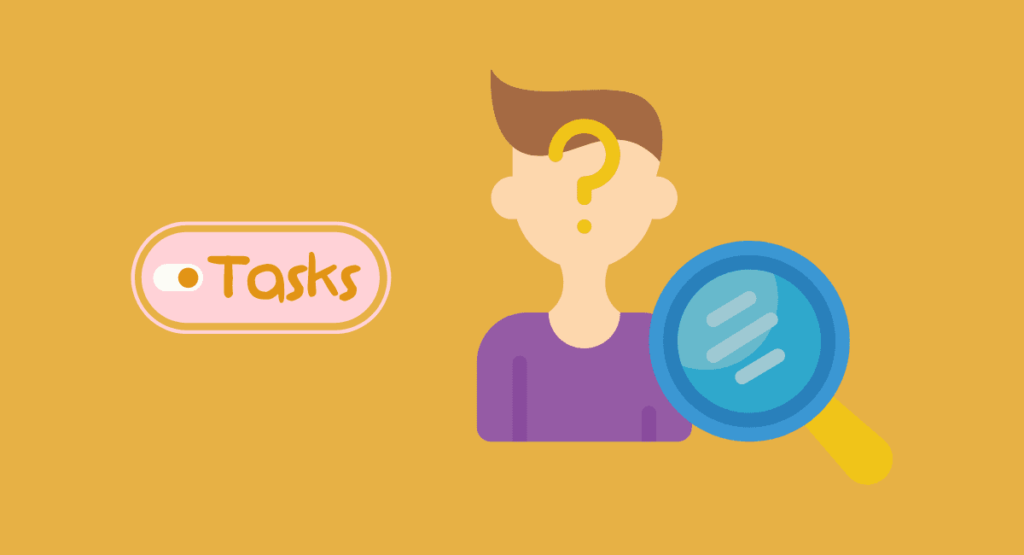
There are several reasons why it can be hard to prioritize tasks. Thanks to ongoing initiatives and stakeholders with fresh concepts, new ideas are always considered. It’s challenging to stay focused on your own work when you feel like you’re being dragged in a million different directions.
Another reason is that it’s often difficult to determine which tasks are the most important. This is where your time management skills will come into play. You need to be able to see through the noise and identify what’s most important at any given moment.
Another approach to address these difficulties is to have a firm grasp of your objectives.
What are you trying to achieve? When you know what you want to accomplish, it’ll be simpler to list your activities in chronological order of significance.
It’s also essential to keep a list of your upcoming deadlines and milestones. This will assist you in keeping track of your progress and ensuring that you’re focused on the most crucial activities.
Finally, don’t be afraid to accept assistance when you need it. Delegating responsibilities to others may assist you in remaining focused on your own business.
The art of knowing what’s most important

Knowing what’s most important is an important skill to develop whether you’re managing a team or leading a company. Prioritizing direct attention items and delegating or completing tasks efficiently will help you succeed.
To determine what’s most important, consider what will have the most significant impact on your goal, what is time-sensitive, and what resources are required.
For example, if you’re trying to increase sales, direct attention items may include developing a new marketing campaign or revamping your sales strategy. If you’re short on resources, you’ll need to prioritize tasks that you can complete with minimal effort.
Always have a notepad handy to take notes on the things you need to accomplish throughout the day; refer to it frequently to ensure you progress on the most critical tasks. By taking the time to prioritize, you’ll be able to achieve your goals more efficiently and effectively.
When you have to prioritize tasks effectively, it’s essential to have a solid understanding of:
- What is most important to your organization?
- What are the company’s goals and objectives?
- How does your role help support these goals?
You may begin to build a ranking system for activities once you’ve figured out what’s essential.
How to use your time effectively to get the most done
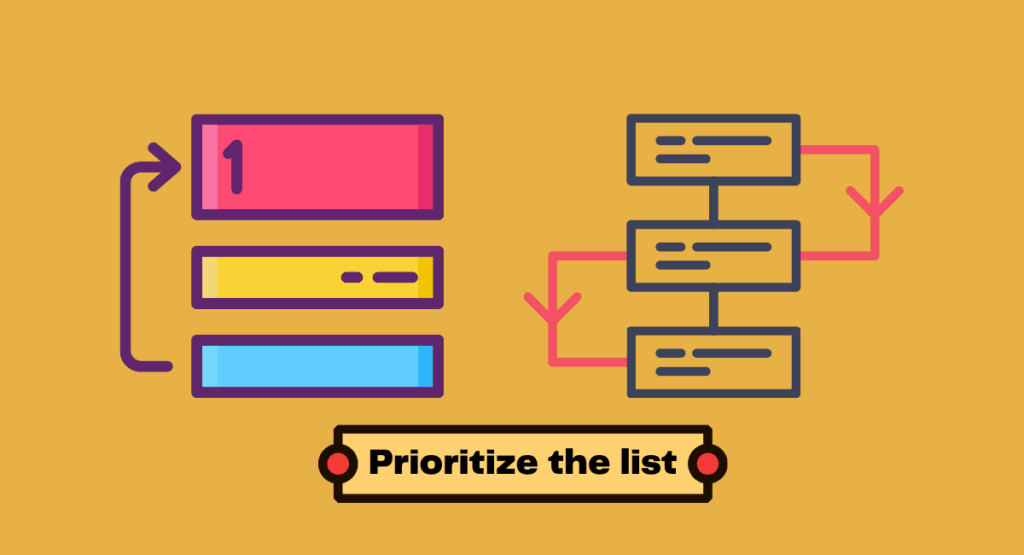
There are a few simple steps you can take to ensure that you’re getting the most out of your time:
- Create a to-do list and include everything from the most critical tasks to minor ones.
- Prioritize the tasks on your list and focus on the most important ones first.
- Set a timetable for each item on your to-do list, and keep to them.
- Take breaks when you need them – but make sure not to take too many.
- Use a timer if necessary to help you stay on track.
What are some common time-wasting activities?
There are four common time-wasting activities:
- Procrastination – When you procrastinate, you’re putting off things you don’t want to do or are not easy.
- Perfectionism – When you spend too much time trying to make something perfect.
- Multitasking is when you try to do too many things at once and not do any of them well.
- Disorganization – When you can’t find what you need or constantly lose track of time.
How to avoid common time-wasting activities
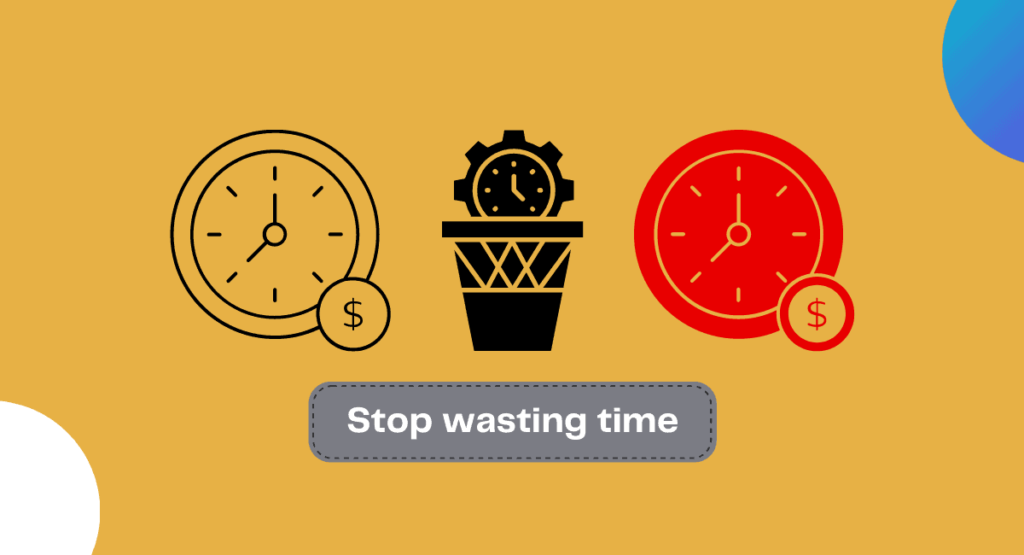
Here are a few methods for avoiding time-wasting routines:
- Set realistic goals for yourself and break them down into smaller, more manageable tasks.
- Create a timeline for each task and make sure to stick to it.
- Eliminate distractions – turn off your phone, close your email, Etc.
- Concentrate on one activity at a time and give it your undivided attention.
- Take breaks when you need them – but make sure not to take too many.
- Use a timer if necessary to help you stay on track.
You can avoid common time-wasting activities and make the most of your time by following these tips.
How to avoid wasting time?

One tip to avoid wasting time is essential to develop a system for prioritizing tasks. Follow this method, and you’ll be sure that you’re always dealing with the most critical issues. Here are a few tips for prioritizing tasks:
Identify your goals.
- What are you trying to achieve?
- What are the most important things you need to accomplish these goals?
Once you know your goals, it will be easier to prioritize tasks. Make a list you need to do to achieve your goals, and then rank them in order of importance.
Start with the most critical tasks, and work your way down to the less important ones.
If you have time leftover, you can always tackle the less critical tasks. But if you don’t have time for them, don’t worry – they can wait.
Remember, it’s crucial to concentrate on the essential tasks and get them done correctly than to try and do everything at once and fail.
As you can see, there are a few different ways that you can go about prioritizing tasks. The essential thing is to find out what you want to accomplish and then focus on the most important activities first.
Create a plan for tackling those tasks
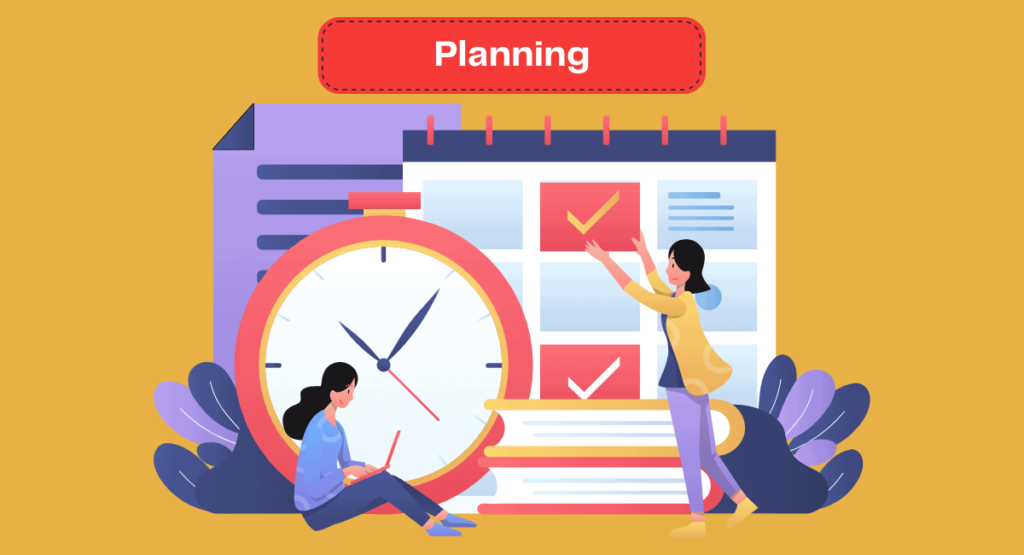
One way to increase your productivity is to create a plan for tackling those tasks. Begin by prioritizing tasks based on urgency.
Urgent tasks need to be completed immediately, such as deadlines or responding to customer inquiries. These should be given top priority.
Next, tackle essential tasks that contribute to your long-term goals. These can be broken down into smaller steps and spread out over time.
Finally, take care of the less important tasks that can be delegated or put off until later. By creating a plan and prioritizing your tasks, you can make sure that you are making the most efficient use of your time.
Stay focused and avoid distractions
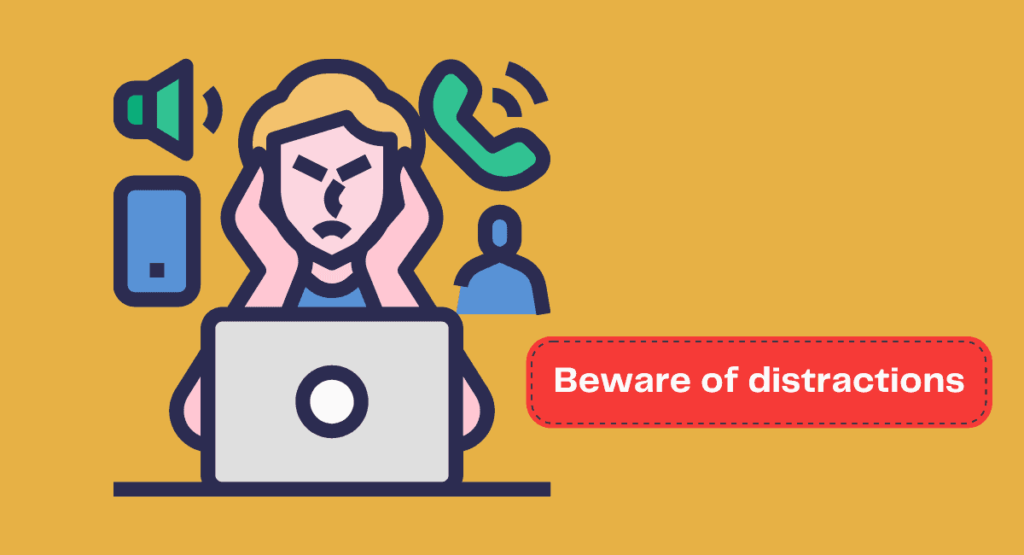
The more tasks you have, the more challenges it is to stay on track and complete everything. When this happens, keeping the focus on any one thing may be challenging.
The key is to prioritize your tasks and first complete the most important ones. Once you’ve completed this step, you may move to the next item on your list. Of course, there will always be distractions, both inside and outside of your control.
However, if you can stay focused on your top priorities, you’ll be able to complete your tasks in a timely and efficient manner.
Ensure you are on track
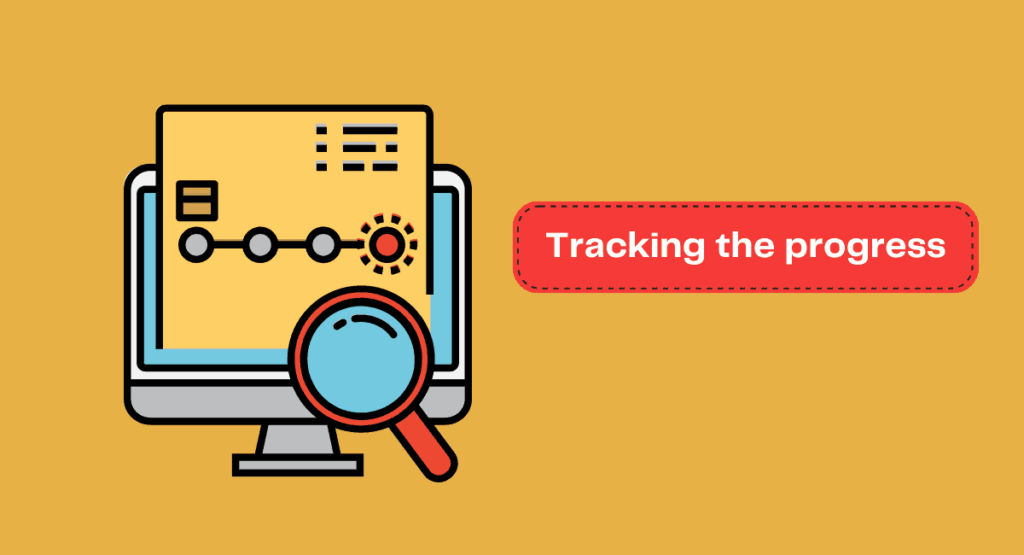
As you work on your goals, it’s essential to track your progress and ensure you’re on track. There are a few different prioritizing strategies to stay focused and on track.
First, you can prioritize by time management technique. This involves breaking down your goal into smaller chunks and allotting time to each piece. For instance, if your target is to write a book, you may want to break it down into smaller goals, such as writing one chapter per week. By prioritizing by time management technique, you can make sure you’re progressing on your plan and keeping on track.
Second, you can prioritize by importance. This means prioritizing your goals based on how important they are to you. For example, if your goal is to get healthy, you may want to prioritize eating healthy and exercising over goals such as watching TV or reading. You can first ensure that you’re working on the most critical goals and staying on track by prioritizing by importance.
Lastly, you can prioritize by difficulty. This means working on the more manageable goals first and then moving on to the more difficult ones. By prioritizing by problem, you can ensure that you’re making progress and not getting overwhelmed by the difficulty of your goals.
Creating a plan, staying focused, and tracking your progress are great ways to ensure you’re using the most effective time possible.
Adjust your plan when necessary
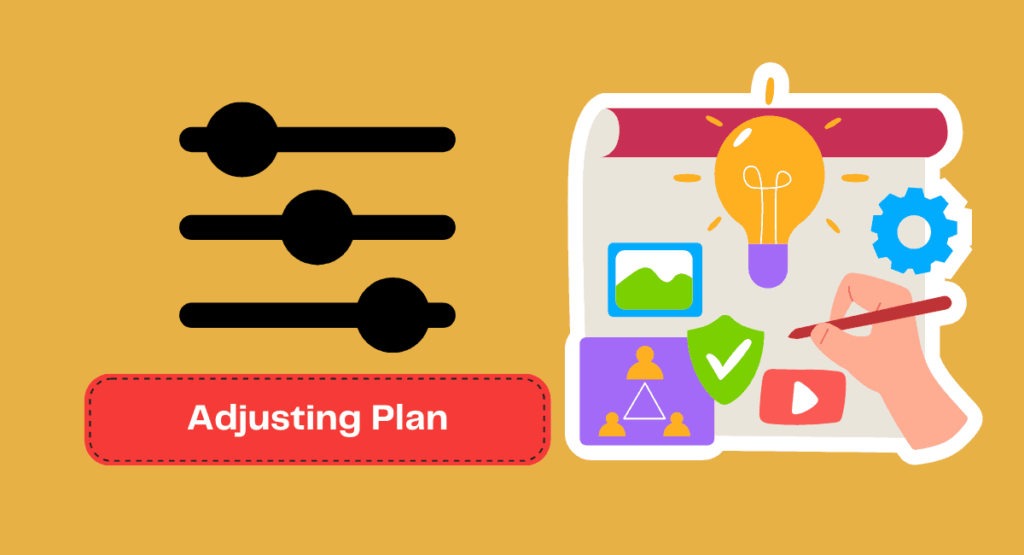
When immediate tasks come up that are different from what you originally planned to do, it is often necessary to adjust your plan.
Consider how the new immediate task fits in with the other activities you must complete.
However, by being flexible and willing to adjust your plan, you will be able to get more done and avoid feeling overwhelmed.
Celebrate your accomplishments
It’s essential that you celebrate your accomplishments, regardless of their length. You remind yourself of your capability to achieve great things and foster a greater sense of self-confidence.
This is especially important when taking on lengthier tasks. By celebrating even small milestones along the way, you remind yourself that progress is possible and that success is within reach.
There are many ways to celebrate your accomplishments. You could treat yourself to a special meal, buy yourself a new book, or take an afternoon off to relax.
Whatever you do, make sure it’s something that you’ll enjoy, and that feels well-deserved. By celebrating your accomplishments, you’ll not only boost your own morale – but you’ll also motivate yourself to achieve even more in the future.
Final Thoughts
Prioritizing tasks can be a challenge, but it’s crucial to spend your time on the most important things. You can avoid wasting time by using the strategies outlined above to guarantee that you aren’t neglecting anything important.

